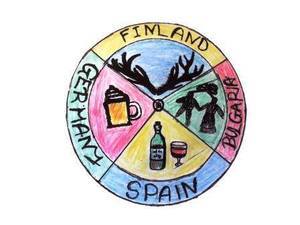Part of the etwinning project Culture Compass - quiz questions and solutions prepared by Secondary l school students from Germany and made for partners in Spain, Finland and Bulgaria
Pin adicionado em
155
0
0
Sem etiquetas

|
Criado por Culture Compass Friends
mais de 5 anos atrás
|
|
Fechar

 Por favor, aguarde! Carregando...
Por favor, aguarde! Carregando...